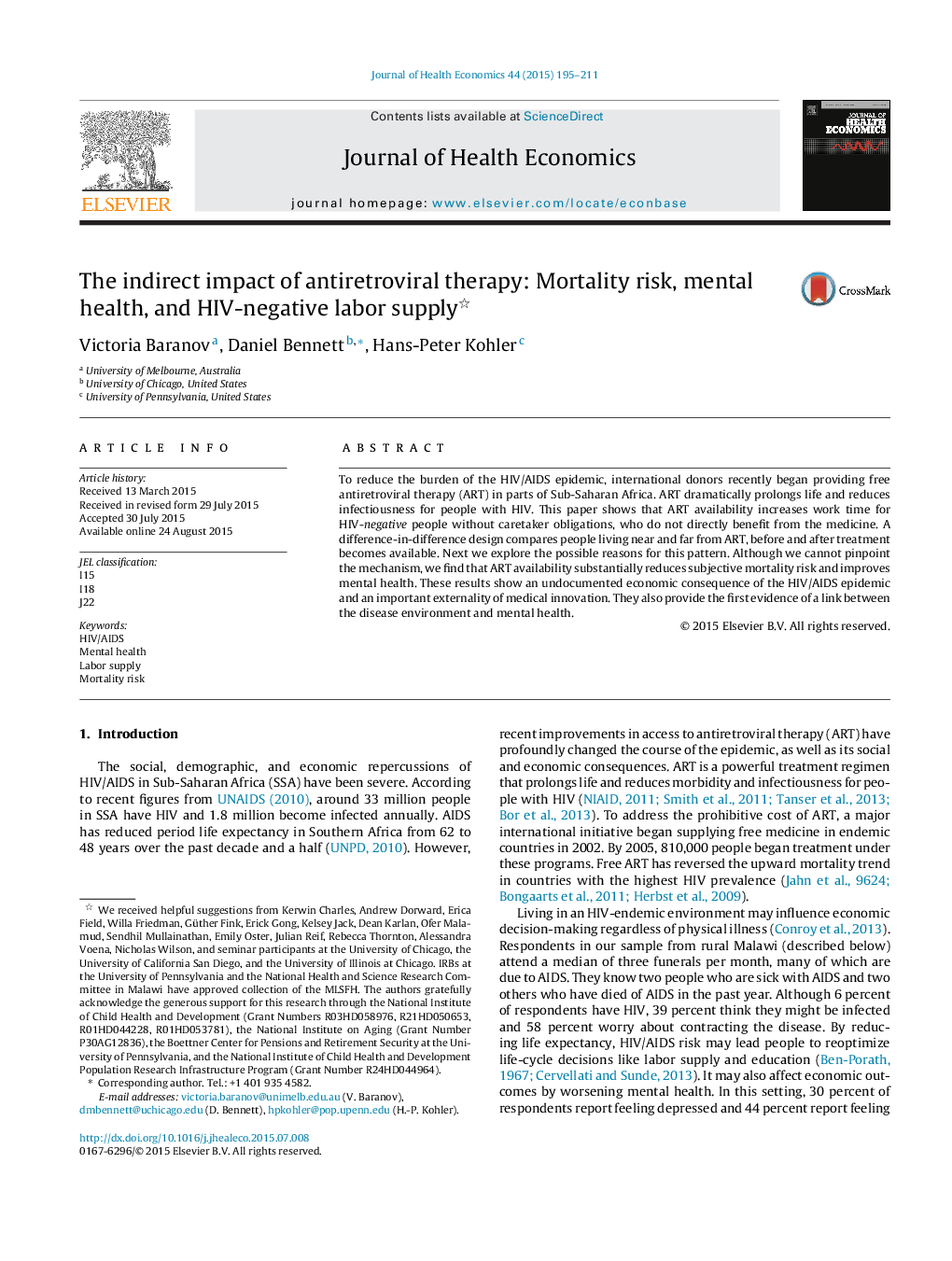| Article ID | Journal | Published Year | Pages | File Type |
|---|---|---|---|---|
| 7363342 | Journal of Health Economics | 2015 | 17 Pages |
Abstract
To reduce the burden of the HIV/AIDS epidemic, international donors recently began providing free antiretroviral therapy (ART) in parts of Sub-Saharan Africa. ART dramatically prolongs life and reduces infectiousness for people with HIV. This paper shows that ART availability increases work time for HIV-negative people without caretaker obligations, who do not directly benefit from the medicine. A difference-in-difference design compares people living near and far from ART, before and after treatment becomes available. Next we explore the possible reasons for this pattern. Although we cannot pinpoint the mechanism, we find that ART availability substantially reduces subjective mortality risk and improves mental health. These results show an undocumented economic consequence of the HIV/AIDS epidemic and an important externality of medical innovation. They also provide the first evidence of a link between the disease environment and mental health.
Related Topics
Health Sciences
Medicine and Dentistry
Public Health and Health Policy
Authors
Victoria Baranov, Daniel Bennett, Hans-Peter Kohler,
